2021 is expected to be a record year for sales with 1.5m transactions taking place. But what can we expect for 2022? Our HPI forecast reveals all.
The end of the stamp duty holiday has failed to dampen demand from potential buyers, which is up 30% on the five-year average.
Thanks to the tapering-off period at the end of the holiday, the anticipated ‘cliff edge’ is nowhere to be seen and the pandemic-induced boom still has further to run.
An estimated 1.5 million homes are expected to change hands in 2021, beating 2007’s previous record, according to our latest House Price Index report.
The combination of a nation re-evaluating what they want from a home, low mortgage rates and the stamp duty holiday have all driven unprecedented levels of demand.
Homes collectively worth £473 billion will be sold this year, that’s up £95 billion on the number of offers accepted in 2020.
However, the level of activity is expected to slow next year as the market faces a number of headwinds.
What’s happening to house prices now?
Annual house price growth was running at 6.6% at the end of September, but this headline figure masks significant regional variations.
Price growth continues to be strongest in regions where property remains affordable, with Wales seeing the strongest gains of 10.4%, followed by the North West at 8.8% and Northern Ireland at 8.3%.
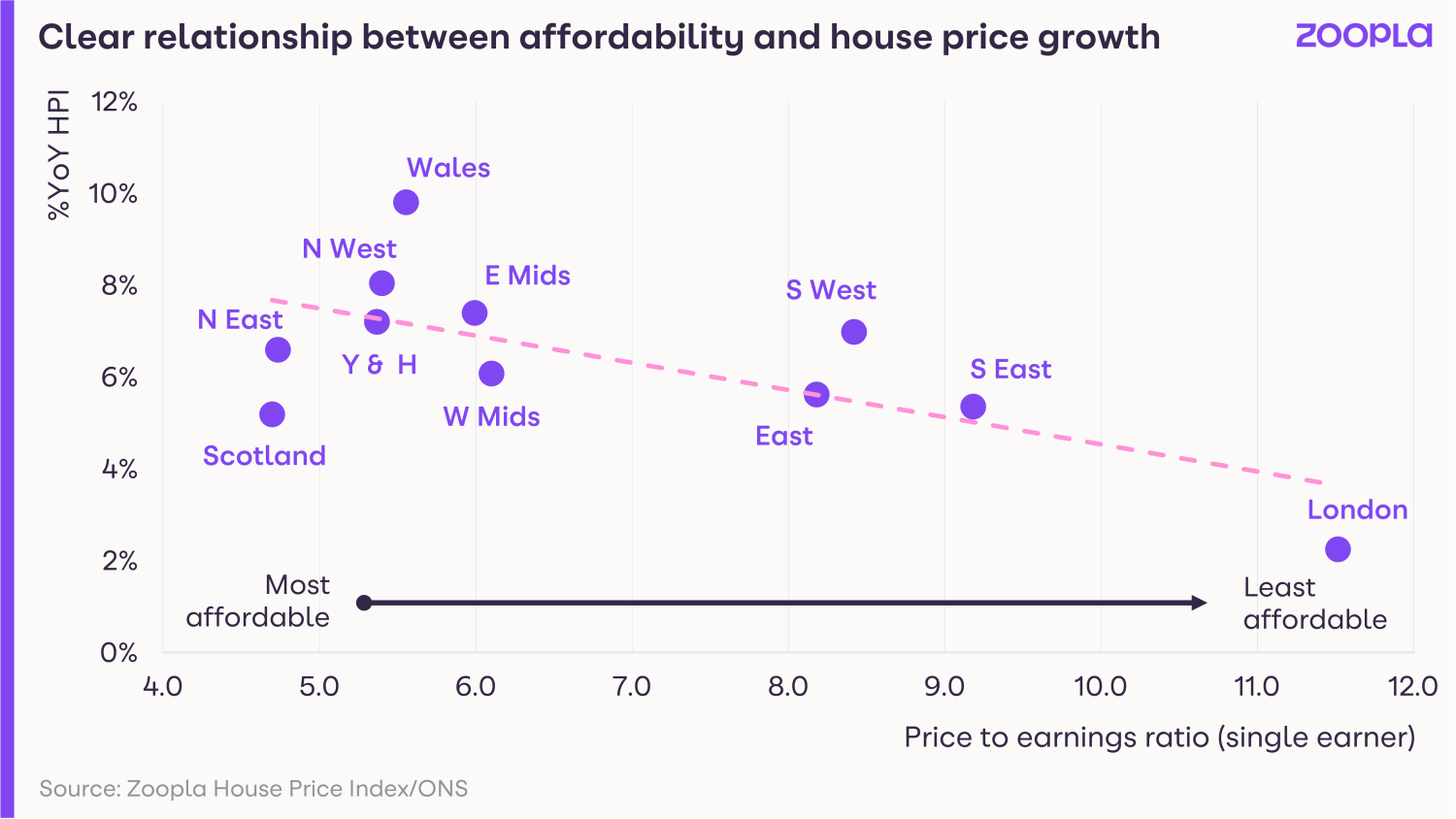
Reflecting the regional trend, the cities with the strongest price growth were Liverpool, Manchester and Sheffield, all located in northern regions.
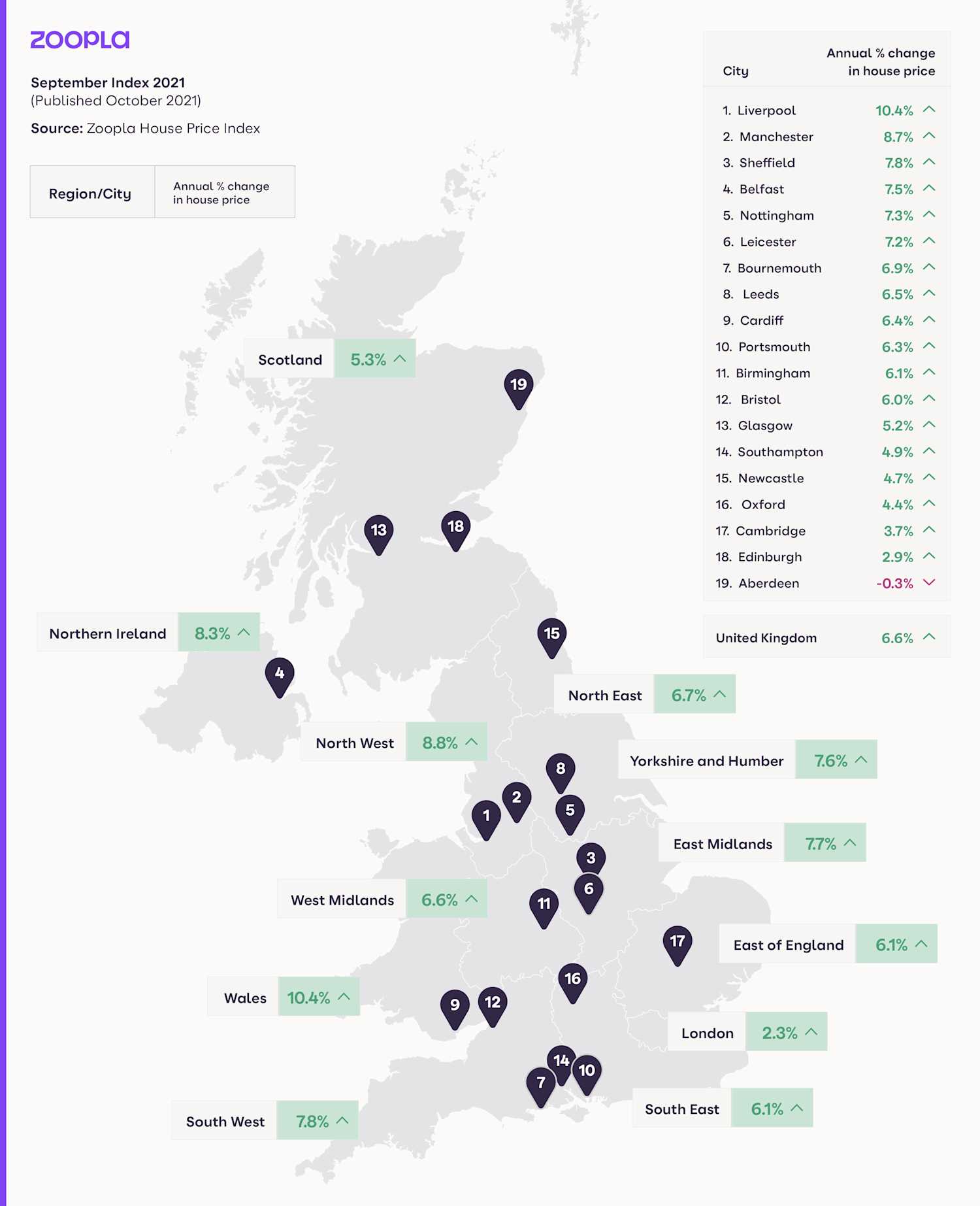
At the other end of the spectrum, London, where the typical property costs 11.5 times average earnings, recorded price growth of just 2.3%.
The capital was the only region in which gains were below the five-year average.
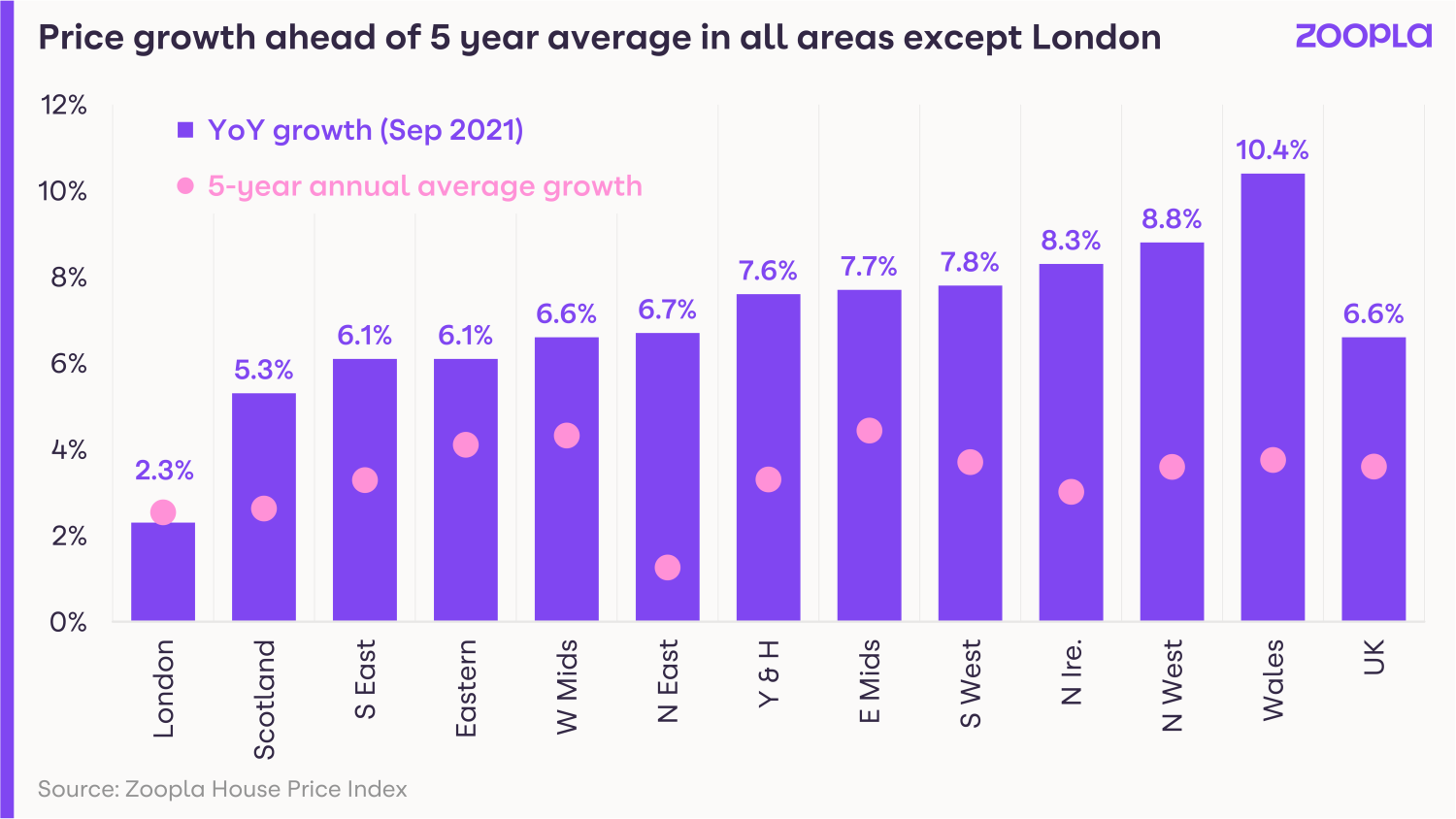
First-time buyers return to the market
Demand from potential buyers has been running at 30% above the five-year average since the summer, and looks set to remain heightened for the rest of 2021 and into 2022.
But the mix of buyers has now changed.
Following the first lockdown in 2020, the market was dominated by wealthier homeowners with high value properties.
In 2021, mortgage availability improved and more first-time buyers returned to the market, leading to a mix of movers that’s more in line with normal levels.
Unfortunately, the increase in demand is not being met by higher supply, with the number of homes listed for sale 38% lower than the five-year average.
This mismatch between supply and demand will continue to put upward pressure on prices.
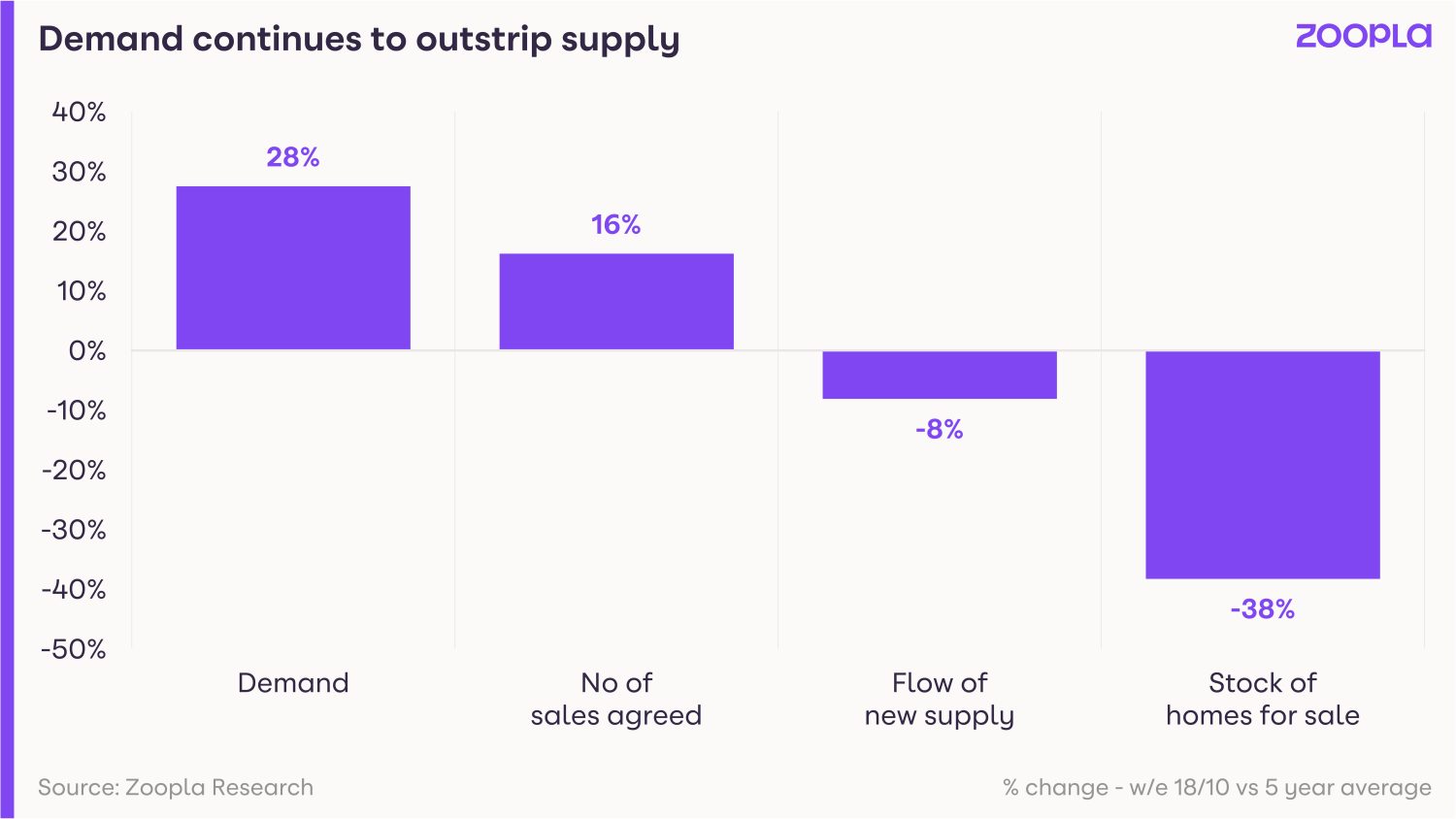
What will happen to the housing market in 2022?
Moving into 2022, the housing market will be influenced by both positive and negative factors.
On the positive side, the pandemic-induced search for space has further to run.
The ability to work from home has expanded the horizons for many office workers who now feel able to look further afield.
Our research shows that 22% of people currently want to move, significantly higher than the usual 5% in a normal market.
The high levels of equity homeowners have built up during the past 18 months and the shortage of homes on the market is expected to support house price growth well into 2022.
But on the downside, the rising cost of living, combined with an expectation that mortgage rates and taxes will rise next year, will impact affordability.
House price growth is expected to end 2022 at 3%, with growth likely to be strongest in the East Midlands and North West and weakest in London.
Transaction levels are expected to fall by 20% to 1.2 million, in line with the long-running average but still comparatively high compared with the past decade.
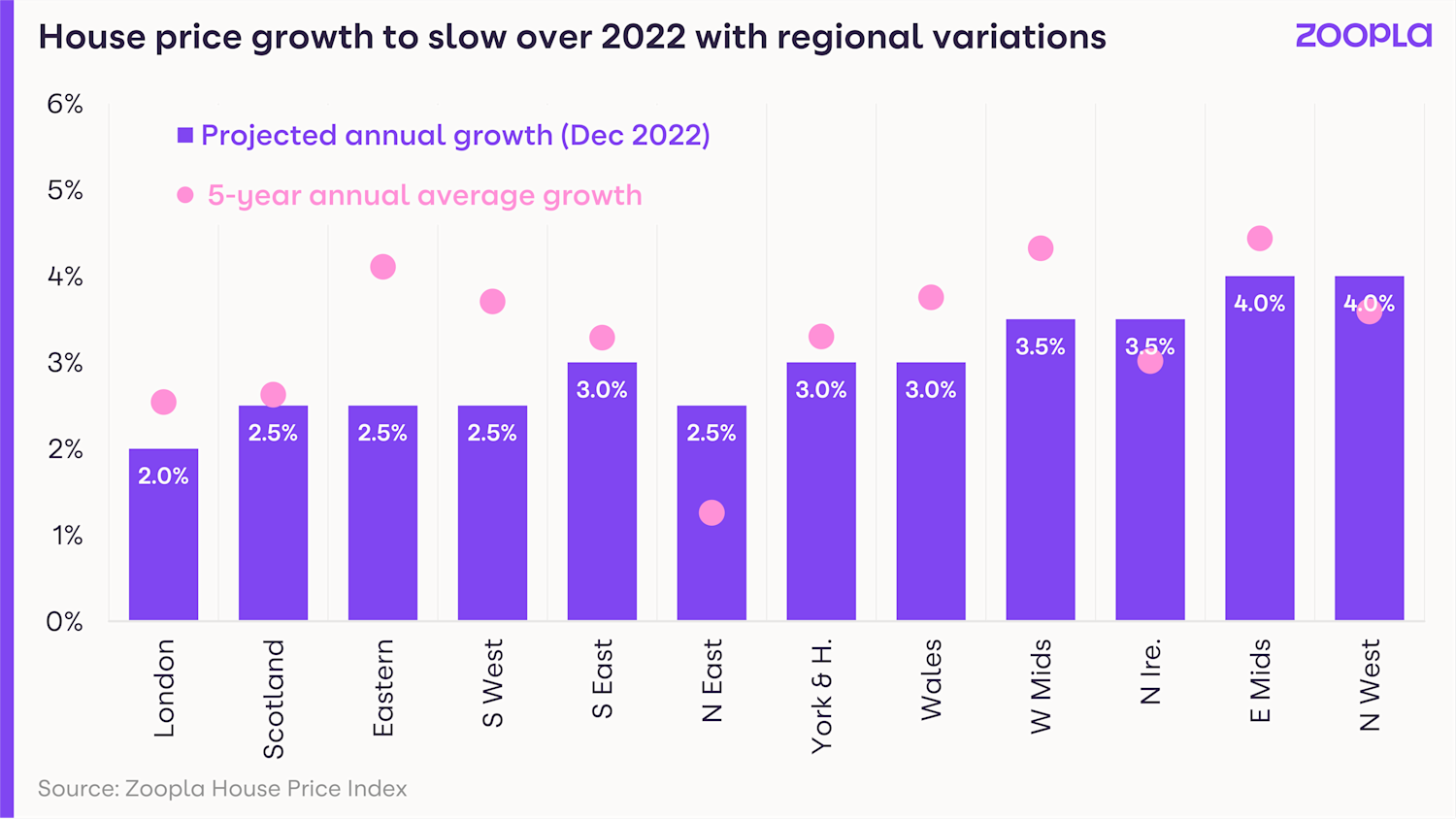
Richard Donnell, said: ‘The impact of the pandemic on the housing market has further to run but at a less frenetic pace.
‘We expect the momentum in the market to outweigh some emerging headwinds from higher living costs and the risk of higher mortgage rates.
‘The latest data shows a turning point in the rate of house price growth, which we expect to slow quickly with average UK house prices up 3% by the end of 2022.’
What could this mean for you?
First-time buyers
The market remains fast-moving and is not expected to start slowing down until well into 2022.
As a result, you’ll need to be prepared to move quickly if you see somewhere you like. It’s a good idea to have a mortgage offer agreed in principle before you start house hunting.
With many potential buyers looking for more space, particularly a garden, you may find you have more choice and less pressure if you opt for a flat.
Home-movers
If you’re thinking of moving, it remains a great time to put your home on the market as demand from potential buyers is continuing to outstrip supply.
Unfortunately, these same dynamics may make it challenging to find your next home.
Do as much research as you can before listing your current property and talk to local estate agents to find out how fast the market is moving in your area.
If the market is moving very quickly, you may want to have an offer accepted on a property you want to buy before listing your current home for sale.
Key takeaways
- An estimated 1.5 million homes are expected to change hands in 2021, making it the busiest year for the housing market since 2007
- 22% of people currently want to move, significantly higher than the usual 5% in a normal market
- Annual house price growth was 6.6% at the end of September but is expected to slow to 3% in 2022
